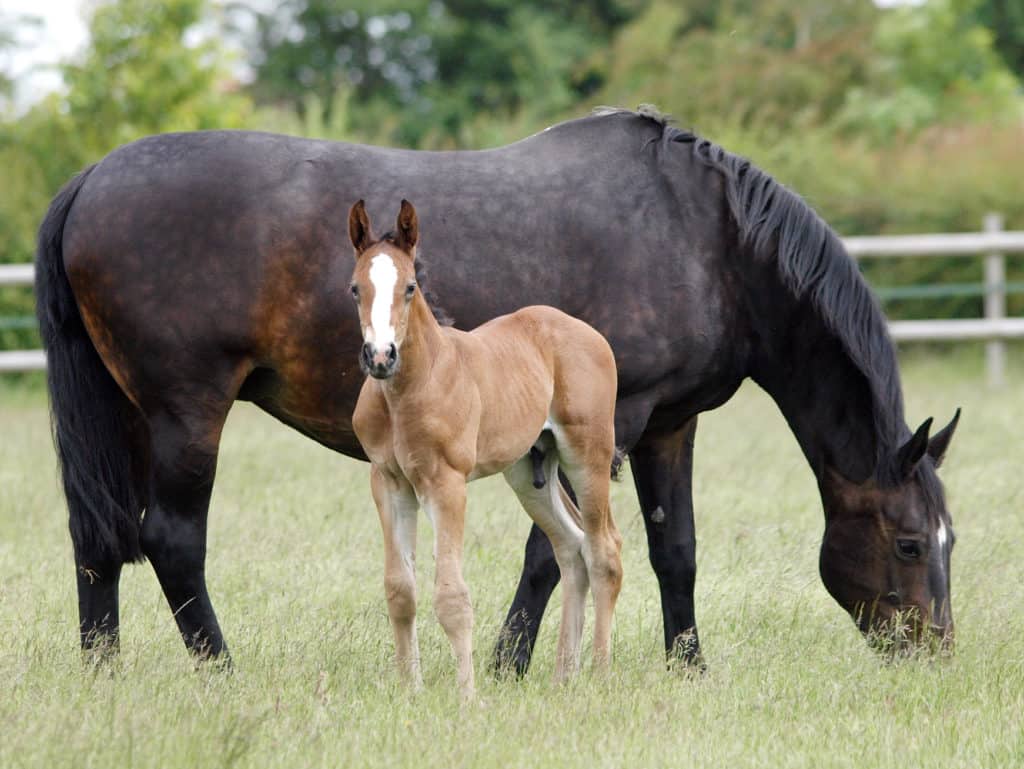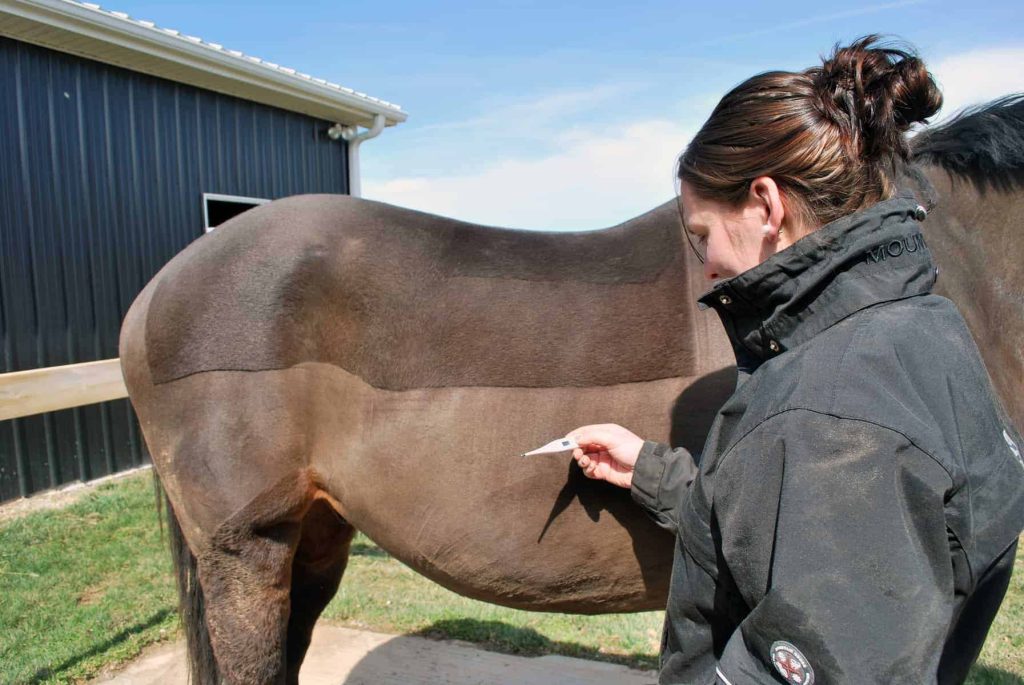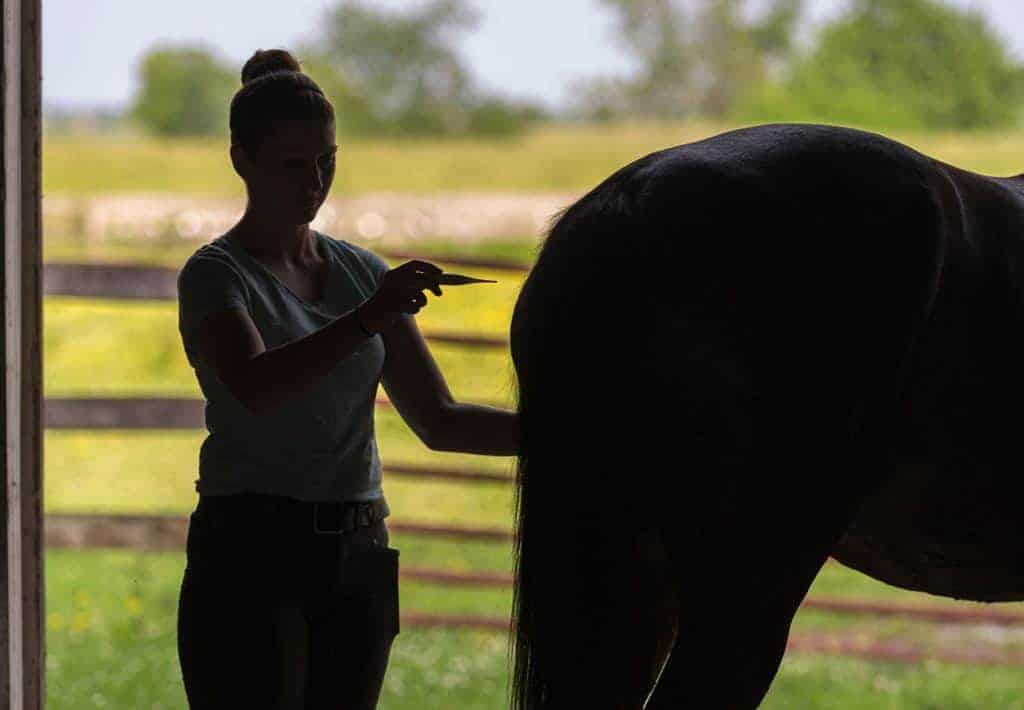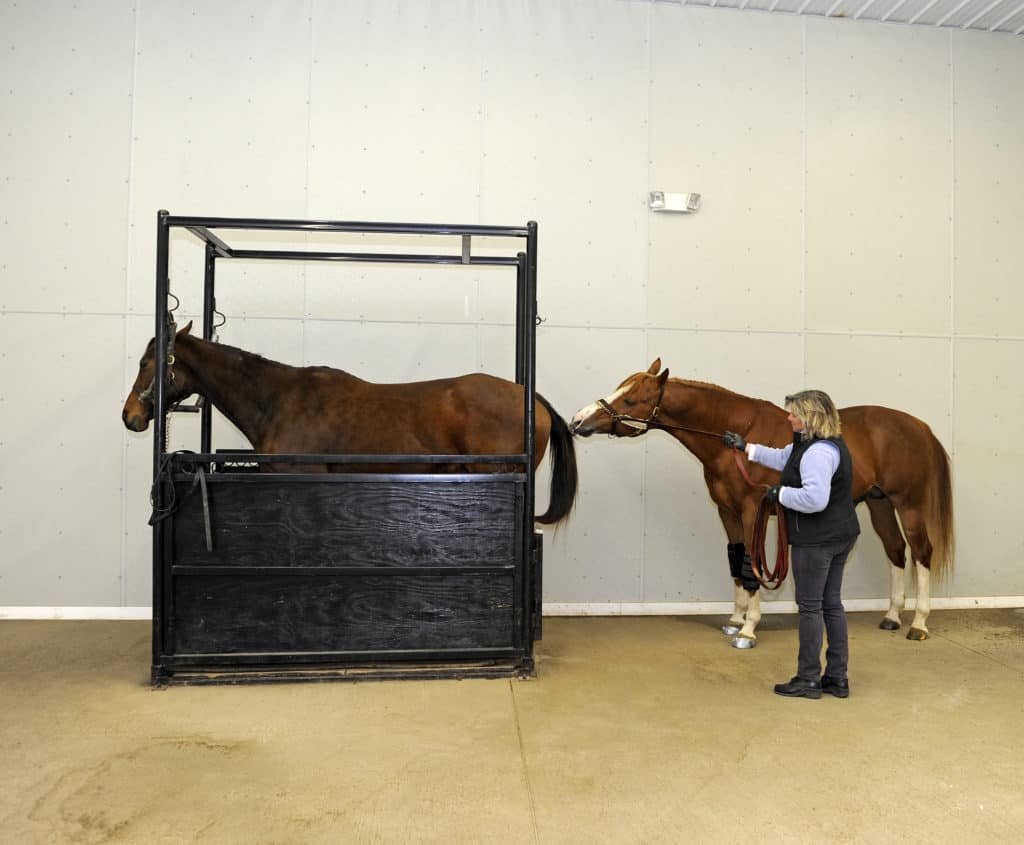
Equine Parasite Control Programs
Is your parasite control program right for your horses? Find out and get your deworming questions answered!
Horse breeding from planning through foal care

Is your parasite control program right for your horses? Find out and get your deworming questions answered!

Lactating mares’ nutritional requirements increase drastically in order to maintain weight while providing nursing foals with enough critical nutrients.

Where do we go from here? Find out from Charlie Scoggins, DVM, MS, Dipl. ACT, who’s a fertility clinician at Rood & Riddle Equine Hospital in Lexington, Kentucky.

Boudaher is studying Rhodococcus equi under the direction of Carrie L. Shaffer, PhD, assistant professor at the Gluck Center.

Post-foaling colic is a significant threat for mares. Dr. Anthony Blikslager describes what to look for and how to respond if your mare colics following foaling.

A barrel racing horse developed rapidly progressive signs of EHM (the neuorlogic form of EHV-1) on April 19 and was euthanized the same day.

The index case–a 17-year-old Thoroughbred gelding diagnosed with EHM, the neurologic form of EHV-1–remains quarantined and isolated offsite and continues to show clinical improvements.

The mule exhibited mild respiratory clinical signs and ultimately died due to pneumonia complications.

The affected horse from Weld County is undergoing veterinary treatment and recovering.

A 17-year-old Thoroughbred gelding was diagnosed with EHM, the neurologic form of equine herpesvirus-1 (EHV-1) after developing neurologic deficits.

Be familiar with the most common problems that can happen within 24 hours of foaling.

The horse that tested positive for EHV-1 has traveled extensively in South Dakota for cutting and sorting events in the past few weeks.

New procedures are now in place to safeguard Britain’s equine population from future contagious equine metritis (CEM) outbreaks.

Vaccinating mares against the polysaccharide poly-N-acetyl glucosamine appears to effectively protect foals against R. equi pneumonia, researchers found.

Meconium impactions are the most common cause of intestinal obstruction and one of the most prevalent health issues overall in neonatal foals.

The horse was moved to an isolation area at his home farm and the premise has been quarantined.
Stay on top of the most recent Horse Health news with
"*" indicates required fields